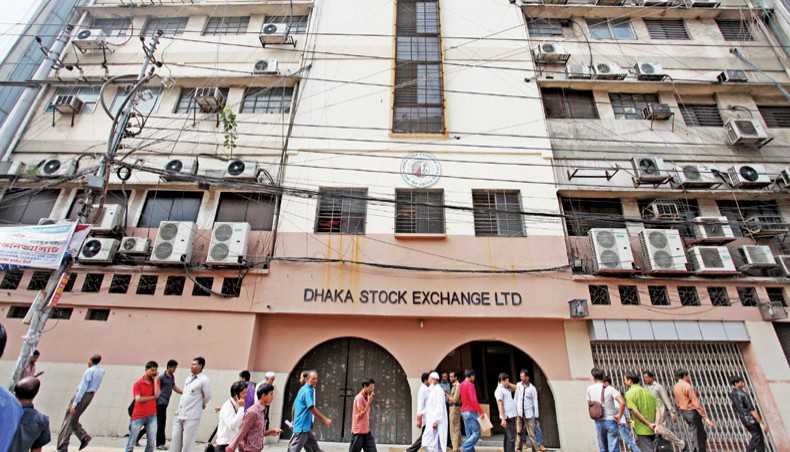Foreign investment withdrawn from Dhaka stocks for 2nd year

Image collected
The net foreign investment at Dhaka Stock Exchange remained negative for the second year in 2019 due mainly to low investors’ confidence in the market, gloomy economic reports and volatile financial sector.
The net foreign sales were Tk 488 crore in 2019 after the investors had withdrawn Tk 593 crore in the previous year.
The foreign investment became negative for the first time in 2018 after 2009-10 when the market crashed.
In last 24 months, the foreign investors were the net sellers in 19 months that indicated highly negative sentiment about the market, said market experts.
They said that the foreign investors backed away from investing in the Bangladesh stock market as the country’s financial sector remained volatile for the second year amid increased non-performing loans, high interest rate and pressure on exchange rate.
Besides, the government’s move to wind up People’s Leasing and Financial Services, a non-bank financial institution, exposed the sorry state of the sector.
A decline in the private sector credit growth to a nine-year low, negative export earnings for last four months, poor tax revenue collection and heavy government borrowing were adding woes to the waning investors’ confidence.
Share market analyst and United International University professor Mohammad Musa told New Age that the overall market situation was bad in 2019 that made the foreign investors cautious on the trading floor.
Besides, chaos at the financial sector, rising distrust in the market and depressing economic indicators hit the market sentiment, he said.
The foreign investors were also spooked by a prolonged bitter tussle between Grameenphone and telecom regulator Bangladesh Telecommunication Regulatory Commission over an audit claim, market operators said.
The share prices of GP, the largest capitalised company, plunged by 22.2 per cent in 2019.
The country’s capital market remained bearish for last 11 months that caused the foreigners to grow worried about the market’s prospect.
DSEX, the key index of the DSE, dropped by 932.71 points in 2019 to end at 4,452.93 points on Monday with the DSE market capitalisation losing around Tk 47,744 crore in the year. The index plunged by 858.88 points in the previous year.
The continued foreign investment flight in last two years from the capital market has become a heavy drag on the market.
Market experts said that the foreign investors usually moved to inject funds when share prices came down to lucrative levels, but the trend was not seen in recent years due to their poor confidence in the market.
The depreciation of the taka against the dollar had also negatively impacted the foreign investors as the depreciation curbed their profitability, they said.
In 2019, the overseas investors sold shares worth Tk 4,166.81 crore against their purchase of shares worth Tk 3,678.64 crore.
The average turnover at the bourse slumped to Tk 480.26 crore compared with that of Tk 552.03 crore in the previous year.
Market experts said that fabrication of financial documents by listed companies, widespread irregularities, asymmetric regulatory approach and approval of weak initial public offerings had made investors lose confidence in the market.
The investors, especially the foreign ones, mainly depend on the financial disclosures of the listed entities to make investment decisions, said market experts, adding that if they found that the statements were fabricated, they shied away from the market.
In last 24 months, the overseas investment was positive in two months — January and February — in 2019 and three months — January, March and September — in the previous year.
The total foreign turnover on the DSE plunged to Tk 7,845.45 crore in 2019 from that of Tk 9,585.61 crore in the previous year.
The net foreign investment was negative in 2018 with a nine-month decline due to the political uncertainties seen during the run-up to the December 30, 2018 general election.
After the election, the foreign investors had heavily bought shares in January and February in 2019 in the hope that the market would turn around but, in reality, the capital market became more volatile.
Source: http://www.newagebd.net
Tags :
Previous Story
- Dhaka stocks gain for 2nd day on new...
- Stocks inch down in early trading
- Ring Shine Textiles to debut on bourses on...
- Stocks dip 39-month low amid economic worries
- LafargeHolcim tops turnover for second week
- SK Trims generates highest turnover
- Dhaka stocks return to positive
- New trading board approved for non-listed firms